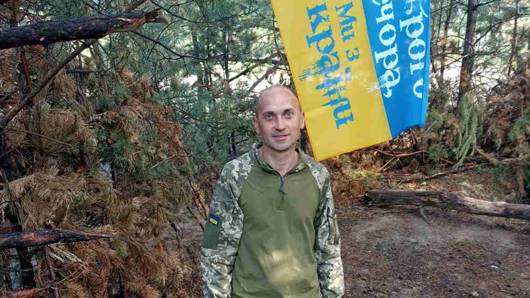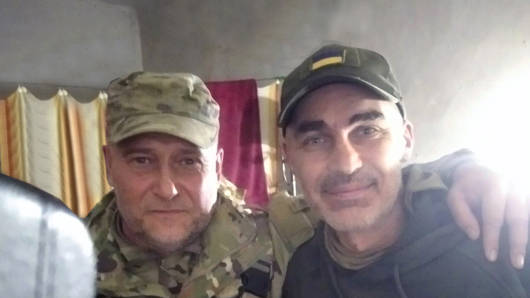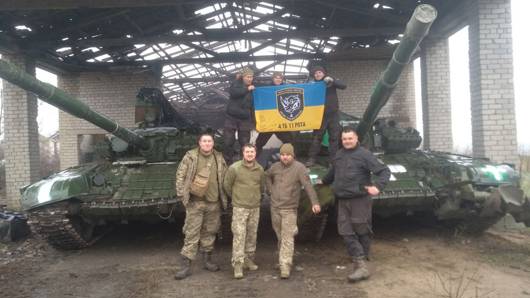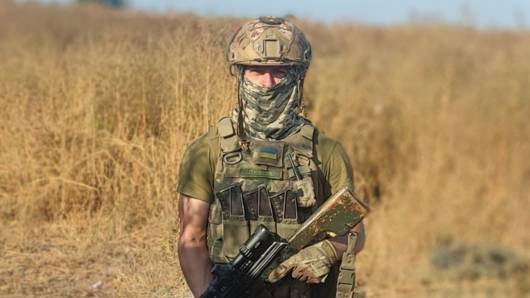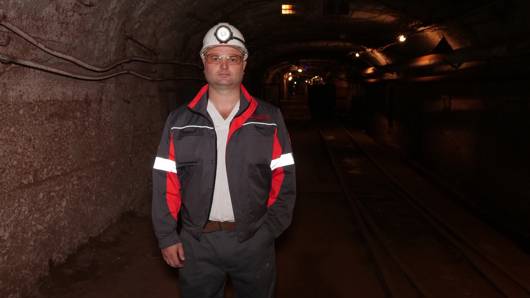Blast Furnace Shop repairman Yevhen Maryin is convinced that his greatest luck in life is the people he works with, his faithful and reliable friends and colleagues, and his close-knit team. He gained this confidence at every stage of his life - working and military. Yevhen was the ATO participant in 2014-2015 and joined Kamet-Steel in 2021, first in the Coke and Chemicals Division, then in the Blast Furnace Shop. On 25 February 2022, he was back in the Armed Forces of Ukraine.
Yevhen Maryin was demobilised in the summer of 2023 and, after undergoing the necessary rehabilitation for health reasons, returned to work at Kamet-Steel in the Blast Furnace Shop. We asked him to share his thoughts on what is important to our colleagues with military experience.
“Yevhen, in your opinion, does participation in hostilities really change your life priorities and outlook? Have you noticed such changes in yourself?”
“I think this is individual for each person. Personally, I haven't noticed any fundamental changes in myself. The only thing that has become more acute is the sense of justice in relation to everything we do - defending Ukraine, and our right to live independently, to have our own free choice and our own way. For me, the war started in 2014, and I was on duty near Luhansk, near Sloviansk, Debaltseve, etc. Even then, it was clear to us who was a friend and who was an enemy.
In 2022, I first fought in the Donetsk sector - the villages of Velyka Novosilka and Neskuchne, it was very hot there, we lost many brothers-in-arms. Then I was in the Zaporizhzhia area. It was a little easier for me, if I may say so, because I had already been ‘shelled’, and I am a grenade launcher firer by military speciality. One thing I will say is that even in war, a person always remains a person, a brave person remains a brave person, a coward remains a coward. Over the past year and a half, I have seen all sorts of things on the 'zero' line...”
“A year and a half in combat, every day is a lifetime. What really helped you to hold on?”
“From the very beginning, we had a very good, friendly platoon, almost all the guys were from Kamianske. We supported each other, shared warm news from home, from our homecity, from various enterprises. We shared the aid that came from volunteers like brothers.
My biggest support was my wife, my Victoriia. I can only guess how she felt when sometimes there was no communication for half a month, I could not call or even write. And she wrote every day. As soon as the connection was restored, I read all these messages - a daily chronicle of her love, faith, and hope.
And, of course, there was support from the company, Metinvest Group. I received a bulletproof vest, a helmet, warm winter gear, and humanitarian aid for my family too.”
“After demobilisation, you returned to KAMET-STEEL. Was it a confident decision or did you still have some doubts and hesitations?”
“There were no doubts or hesitations. Even on the front line, I dreamed of returning to my team. I must have been really lucky with people and the team. I may have worked in the blast furnace shop for a short time before the war, but I made real friends whose support was invaluable at the front. We met as a team right after my demobilisation, on Metallurgist's Day, and everyone was very happy to see each other. Besides, after the war hell, I really wanted to do peaceful work - to repair and restore something. Thoughts of stability and salary came a little later - the first civilian pleasure was the ‘luxury of human contact’.
I started work on 23 November. I was greeted well in the shop, with sincere but not excessive attention to my needs. But I repeat that I was positively inclined to return and meet the team beforehand. I think we can say that my return to civilian work in the familiar team went well for me.”
“After his return, Yevgen started working in a responsible area for the maintenance and repair of mechanical equipment for blast furnace charging. His immediate partner, foreman Sergii Hemai, notes his professionalism and high-performance discipline, as well as his organisational skills and desire to improve his skills. That is why we are now entrusting Yevgen Marin with more responsible tasks, such as monitoring the work of contractors during scheduled maintenance,” said Mykhailo SYROTKIN, blast furnace shop mechanical engineer.
“Yevgen, as a person with combat experience and a positive experience of returning to civilian work, what do you think is needed to help our colleagues to adapt positively to their teams and civilian life after demobilisation without any barriers or disruptions?”
“I don't think there is any universal ‘recipe’ here, and I repeat, it is all purely individual for each person. First of all, you need to take a short time out to understand your attitude towards the team you work with and objectively assess the attitude of the team towards you. Perhaps not everyone is as lucky as I am with friends...
I sincerely advise those who experience internal psychological stress to consult psychologists. By the way, the company provides such opportunities in the format of both group sessions and individual consultations.
I also think it would be very good to unite the combatants at the enterprise into a certain group. This could be a non-governmental organisation or some other social form of association - the main thing is that there should be frank communication between people with war experience. Perhaps in this way the war veterans could get help from lawyers and psychologists. In any situation, a person should not be left face to face with his or her problems, and certainly after returning from the front line, and it is better to have balanced, reasonable and qualified support.”






